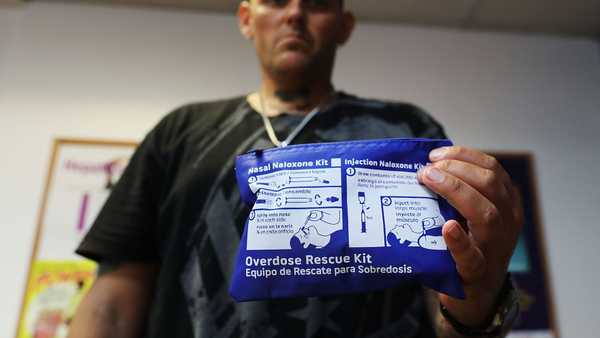“The War on Drugs” is an American term popularized after President Richard Nixon's June 1971 press conference where he declared drug use “public enemy number one.” It’s come to summarize Americas semi-obsessed, prohibitive, set of drug laws and initiatives on all psychoactive substances, from Marijuana to Heroin to LSD. What started as a way to combat the growing problems in our country of substance abuse and addiction, has been transfigured so many times over by mandatory minimums, the pharmaceutical industry, and for-profit prisons, we have lost sight of why this fight started in the first place, the people. This issue is multi-faceted, however, and must be examined from many other views than one to understand the full picture. This “war” has failed on an economic and socio-economic level. First, though, to understand where we are now, you have to know how we got here.
America has had a long history with prohibition way before Nixon’s war on drugs started. From the 18th amendment passing in 1919, which prohibited the sale and manufacturing of alcohol, to the draconian drug laws of today, it is nothing new. The Harrison Narcotics act was the first U.S law, passed in 1914, aimed at restricting drug use, and it required anyone who prescribed narcotics to register for and pay a tax.
Following the repeal of prohibition in 1933, president Roosevelt publicly endorsed the Uniform State Narcotic Drug Act, which aimed to make laws uniform in various states regarding the sale and usage of narcotics. These laws just laid the foundation for the many that would follow, some with ulterior motives that included the destruction of the hemp industry, and creating various sentencing disparities, including mandatory minimums, aimed specifically at certain communities, primarily African Americans.Domestic policy in the US on drugs has been on a steady track for over a hundred years now as has been shown. One of the major homegrown issues of the "War on Drugs" is the soaring incarceration rates that according to the Human Rights Watch, deliberately targets African Americans. This is affirmed by a quote directly from John Ehrlichman, the domestic affairs advisor to Nixon in the white house.
"The Nixon campaign in 1968, and the Nixon White House after that, had two enemies: the antiwar left and black people. You understand what I’m saying? We knew we couldn’t make it illegal to be either against the war or black, but by getting the public to associate the hippies with marijuana and blacks with heroin, and then criminalizing both heavily, we could disrupt those communities. We could arrest their leaders, raid their homes, break up their meetings, and vilify them night after night on the evening news. Did we know we were lying about the drugs? Of course we did."
This is a disturbing and chilling declaration and there are a ton of statistics available to back it up. For instance, in the 1980s while all crime rates rose just 28%, arrests numbers related to drugs inflated 126 percent, in addition, a 2008 Washington Post article stated 1.5 million people will be arrested each year for drug offenses, and one in five African Americans would spend time in jail for a drug-related offense. These numbers are staggering, and in my opinion, unacceptable on an economical and personal level, for what are largely victimless crimes. In a day & age where the debt ceiling is as high as it's ever been, American's are paying $31,307 a year per person incarcerated for drug offenses, and more importantly, these people are losing valuable time of their lives no amount of money could ever repay. According to a 2008 study published by a Harvard economist, America could save $41.3 billion dollars annually by legalizing drugs, just from enforcement and incarceration cost alone. The study further goes on to state an estimated $46.7 billion in tax revenue goes unclaimed while we have people starving in the streets, a crumbling infrastructure, and rising federal debt with no end in sight.
Perhaps more important than anything discussed so far is the effect this has taken on us, the people. By removing further educational and job opportunities on young Americans, mandatory minimums and criminal punishment have in effect, created a permanent underclass of people unable to rise above their assigned role in society. In doing this we are cutting off part of what makes the United States as a country so great, our people. In denying these people the help they need and instead locking them away, we could be losing doctors, engineers, intellectual people that this country desperately needs. Turning our backs on people who took a wrong turn is not the answer, and sentencing them to a lifetime of struggles will only further perpetuate their desire to use and become a strain on everybody else.
We need to instead treat the cause, battle addiction with doctors and treatment centers, not prisons. This method can work, and has been proven more successful than the heavy-handed punishment model. A survey taken by the Substance Abuse and Mental Health Services Administration found that users who remained in treatment longer were two-thirds less likely to return to their former habits. In treating the root cause of substance abuse, addiction, we can rehab former addicts and return them to society as useful productive members, instead of career criminals spurned by the government and left to wallow in their own despair.
The War On Drugs may have started with the best of intentions, although it is questionable whether it did, but it has been largely inefficient in both cost and treatment. For those who know me and my story, you know I have a personal interest in this matter. As my generation comes of age and we become leaders I challenge us to reform these measures and replace them with laws that will allow us to capitalize on tax streams from drug legalization and also get addicts the help they need and not lock them away. We can do better than this. We must do better than this. We have to ask why the punishments are so severe for choices people make in their own homes, and what they put in their bodies as adults.
I want to make it clear I am not calling for the legalization of all drugs across the spectrum, I know on a personal level how addicting the harder the ones can be and the amount of ruin they can cause. Drugs like Marijuana and Cocaine though can be used responsibly and taxed for the betterment of the whole, while some people will become addicted to it, much like alcohol, we have to remove the stigma associated with it so they aren't afraid to get help if they need it. It is beyond time we take back some control from the government over what we put in our bodies but we must do it responsibly and with care, or we will be no better than those who came before us.






















